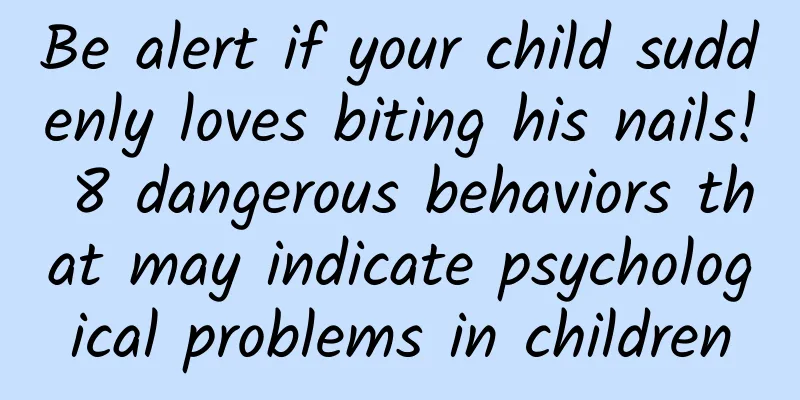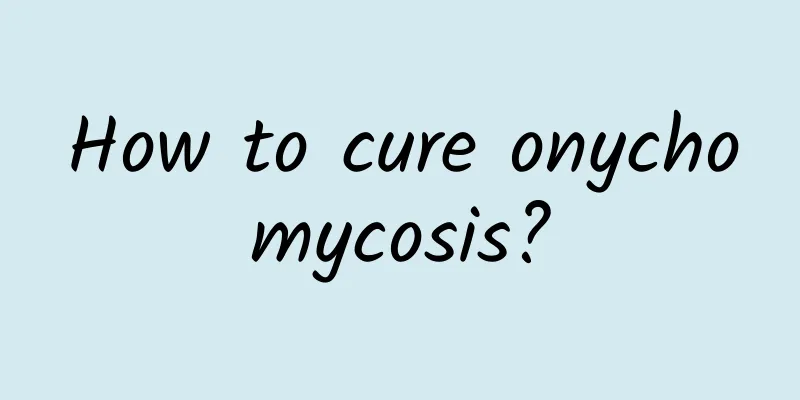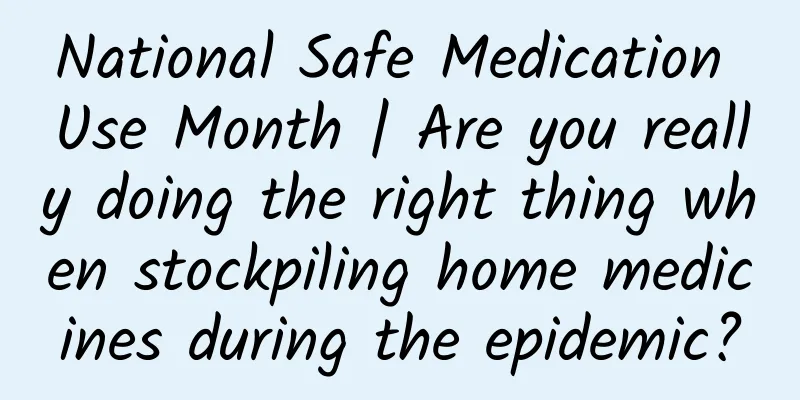Be alert if your child suddenly loves biting his nails! 8 dangerous behaviors that may indicate psychological problems in children

|
"Mom, my fingers hurt!" When the child bites his nails until they bleed again, many parents feel distressed and anxious. Preaching doesn't work, and beating and scolding are even more ineffective. Why has this seemingly "unhygienic" little action become a problem that troubles countless families? The child suddenly loves to bite his nails. This seemingly insignificant habit may actually hide deeper psychological problems. As parents, we need to be vigilant at all times and pay attention to changes in children's behavior so that we can discover and respond to potential psychological problems in a timely manner. The following are 8 dangerous actions of children with psychological problems, which may be signals that the child is not in good mental condition. Why is nail biting a child's "psychological language"? Nail biting is not a "bad habit" but a silent cry for help from children. When children repeatedly bite their nails or even tear their nail beds, this has already gone beyond the scope of "hand hygiene". Psychological research has found that 65% of nail biting behaviors are directly related to anxiety - those nails that are bitten bare are actually "visual wounds" of children's pent-up emotions. From the perspective of developmental psychology, it is normal for children to explore the world through their mouths before the age of 3 (oral stage), but if this continues during school age, it may mean: 1. Insufficient ability to regulate emotions : When facing stress, the pain caused by biting will stimulate the brain to secrete endorphins, forming a physiological closed loop of "pain-relief". 2. Lack of security : Just as babies get comfort through sucking, nail biting in older children may be a compensation for the lack of early mother-child connection. 3. Family stress projection : Clinical cases show that the incidence of nail biting among children is three times higher in families where parental relationships are tense or parenting methods are harsh. Be alert if your child suddenly loves biting his nails! 8 dangerous behaviors that may indicate psychological problems in children Nail biting Nail biting is one of the most common manifestations of psychological problems in children. This behavior is often related to anxiety, tension or lack of security. When children face stressful or uncertain situations, nail biting may become a way of self-soothing. However, long-term nail biting can not only cause nail deformation and infection, but may also affect children's oral health. Eating fingers or chewing pencils Similar to nail biting, sucking fingers or chewing pencils is also a way for children to cope with psychological stress. These behaviors may be due to the fact that the child's oral sensitivity period is not satisfied, or an anxious reaction to the external environment. These habits also have health risks and are prone to the intake of harmful substances such as bacteria and viruses. Frequent blinking or shrugging Frequent blinking and shrugging may be signs of tic disorder. Tic disorder is a neurodevelopmental disorder in which children make repetitive movements or sounds involuntarily. In addition to blinking and shrugging, they may also sniff their nose and clear their throat. These behaviors may be due to genetic, neurobiological or psychological factors. Over-dependence or social avoidance If a child suddenly becomes overly dependent on his parents or avoids social situations, it may be a sign of psychological problems. This dependence or avoidance behavior may stem from the child's inferiority complex, social phobia or separation anxiety. Parents should pay attention to their children's social needs, encourage them to actively participate in social activities, and cultivate self-confidence. Decline in academic performance A sudden drop in academic performance, especially when a child's intelligence level is normal, may be a sign of psychological problems. Learning difficulties may stem from a child's anxiety, depression, or attention deficit hyperactivity disorder. These problems can affect a child's ability to focus and study efficiently, leading to a drop in grades. Mood swings Mood swings, such as frequent temper tantrums, crying, or depression, may be a sign of psychological problems in children. These emotional problems may stem from factors such as family environment, school pressure, or interpersonal relationships. Parents should pay attention to their children's emotional changes, communicate with them in a timely manner, and understand their inner needs. Disruptive Behavior Destructive behaviors, such as throwing things, hitting people, or damaging public facilities, may be a manifestation of a child's psychological problems. These behaviors may stem from the child's anger, frustration, or inability to control his or her emotions. Parents should guide their children to learn to express their emotions correctly and avoid using violent means. Sleep disorders Sleep disorders, such as difficulty falling asleep, waking up easily, or sleepwalking, may also be a sign of psychological problems in children. These sleep problems may stem from anxiety, depression, or physical discomfort in children. Parents should pay attention to their children's sleep quality and make sure they get enough rest. Four-step scientific intervention to break the nail biting anxiety cycle 1. Allow and accept children’s emotions. Improve the relationship with children, so that children can have a safe space to express and present their emotions, and no longer provide new “fuel” for symptoms. 2. Reduce attention to this behavior. Avoid blaming and criticizing your child for this behavior. If it is really uncomfortable to watch, you can try to take your child to do something else to divert his attention when you see him doing this behavior. 3. Develop alternative coping methods. You can think with your child about other non-harmful and emotional ways he can do when he wants to bite his nails. Find a way to replace the habit of biting nails. For example, take a coin and flip or fiddle with it in your hand. It doesn't matter how you play, what matters is that your hands are occupied. You can also try to do something else with your mouth when you have the urge to bite your nails, such as chewing gum, until the urge to bite your nails slowly disappears. 4. Set a small goal first. If your child has bitten some of his fingers very badly and has some wounds, you can try to explain the concept of nature reserves to your child, and then choose one finger as an "endangered species reserve" and stop biting it for about a week. If the child does it, you can fulfill one of his small wishes. If he really doesn't do it, don't criticize him. You can express your regret and ask him if he is willing to try again. If the situation is very serious and he will feel very anxious and uncomfortable if he doesn't bite his nails, then he must see a psychologist in time. |
<<: How to protect ears and hearing scientifically
>>: Do you want to pick wild vegetables on the roadside?
Recommend
What should we do if children are infected with the new coronavirus? Pediatric experts answer in one article
At present, it is the peak season for upper respi...
Black blood 10 days after induced abortion
The harm of induced abortion to women's body ...
Is there a high chance of infertility after abortion?
For some female friends, unexpected pregnancy is ...
How many days does induced labor require hospitalization? How painful is it? Is there any painless method?
Induced labor is generally used for pregnant wome...
How many months of pregnancy is suitable for hair cutting
During pregnancy, women will encounter many troub...
What are the dangers of having sex during painless abortion?
Although painless abortion will not cause pain to...
Can artificial insemination lead to ectopic pregnancy?
Many people do not know much about ectopic pregna...
Can I eat dried mango during menstruation?
Menstruation is a very sensitive period for femal...
What are the symptoms of post-abortion sequelae?
At present, with the continuous development of me...
What is the reason for abdominal pain after uterine curettage?
The most common way to deal with an unwanted preg...
Why do people always say "exercise for 30 minutes"? Is 29 minutes enough?
The weather has been getting cooler recently, so ...
What are the benefits of eating garlic for women
Garlic, many people think of it as a seasoning. I...
Why is snail rice noodle delicious? Why is there no snail in snail rice noodle?
Snail rice noodle is the most famous and popular ...
What are the dangers of getting angry during pregnancy?
When a woman is pregnant, her mood may sometimes ...
Abdominal pain after salpingography
Hysterosalpingography is a common fallopian tube ...









